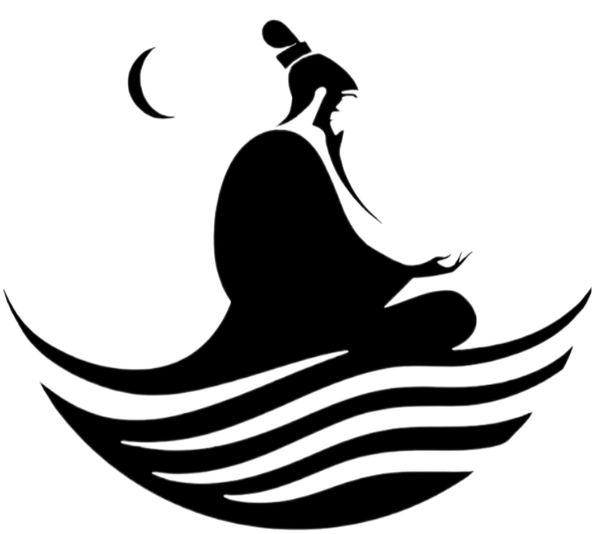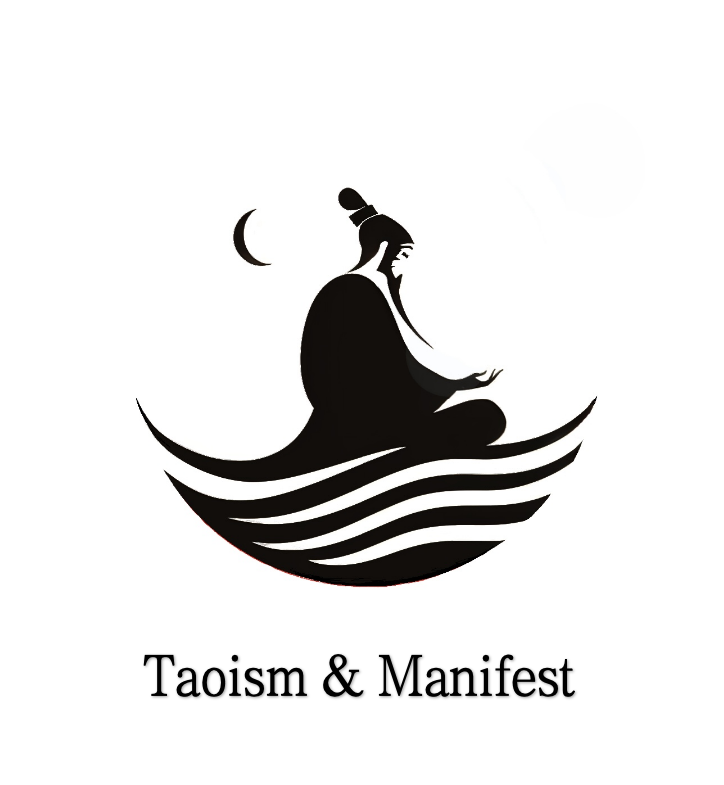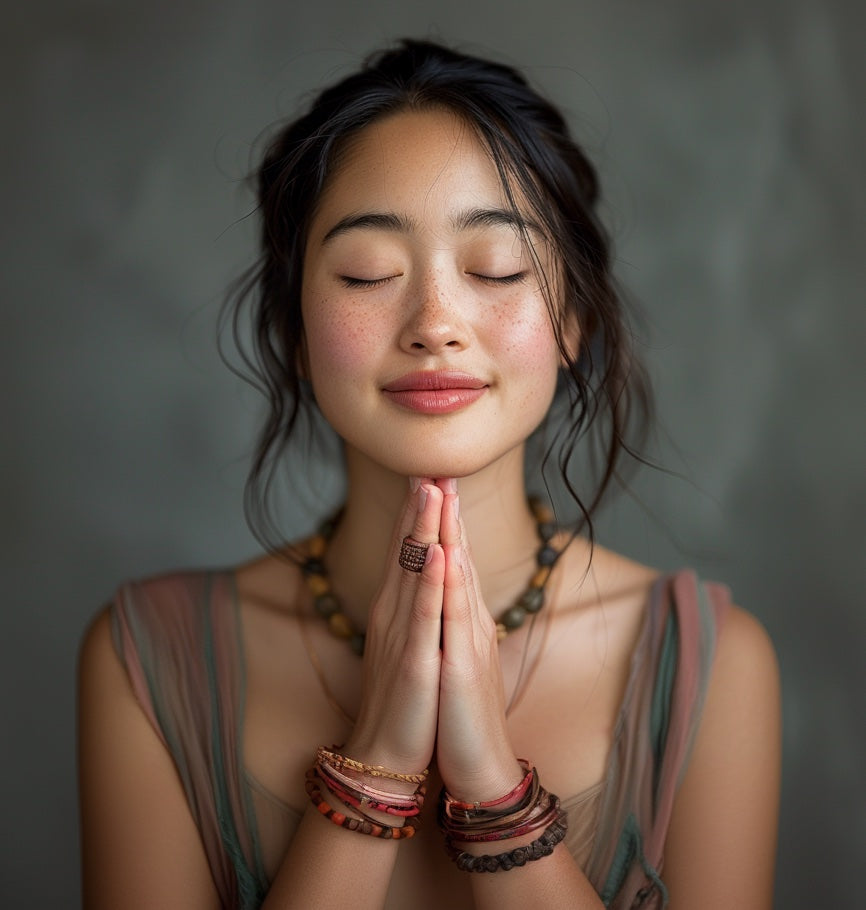
Water Is Essential in Taoism and Daily Life

Water is important for life and health. It makes up about 60% of our bodies. Water helps every big system in us. In Taoism, water is a symbol. It shows the wisdom of the tao. Water has softness, humility, nourishment, and adaptability. These qualities teach us how to act each day. Water shows us to move around problems. It teaches us to stay flexible and help others without trying too hard. By watching water’s gentle power, we can learn from the tao. The tao helps us grow and live in harmony.
Key Takeaways
Water stands for being gentle, humble, and able to bend. It teaches us to deal with life in a kind and patient way. Following water’s way means we change when needed. We look for calm answers instead of using force. Being like water helps us handle problems with quiet strength. It helps us stay open to new ideas and ways. Practicing Wu Wei, or easy action, lets us move through life smoothly. It helps us feel less stress. Water reminds us to take care of ourselves, others, and nature. This helps us live in balance and peace.
Water in Taoism
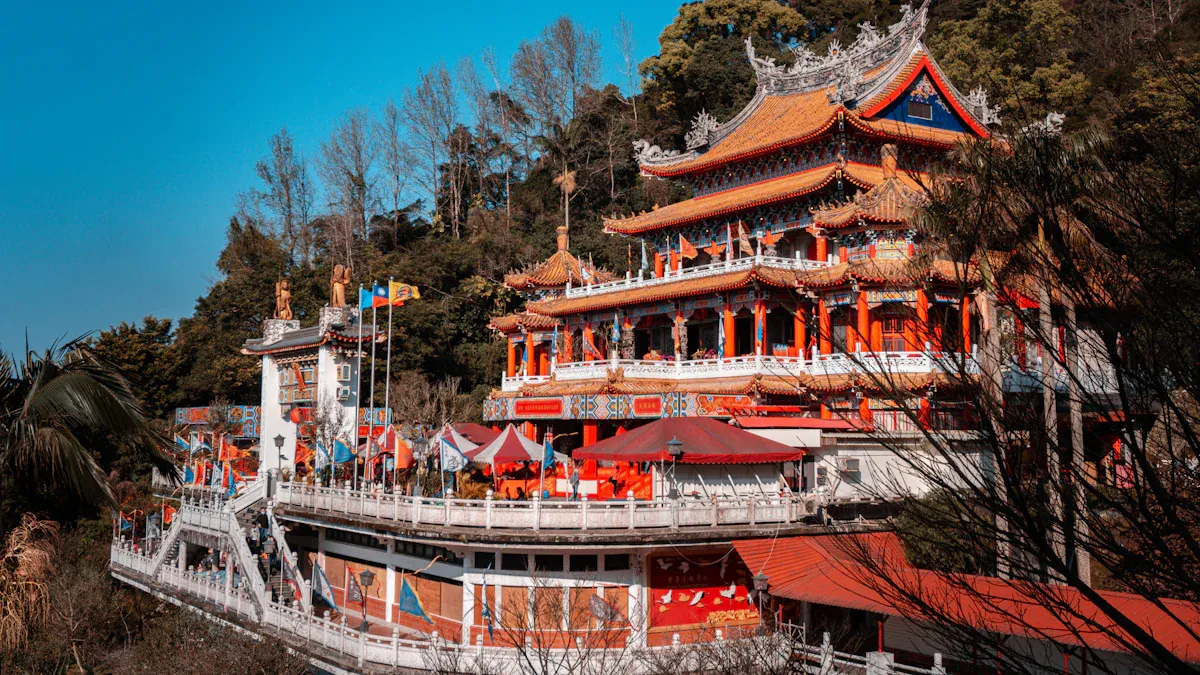
Symbolism of Water
Water is very important in Taoism. It stands for being calm, humble, and able to change. Taoist thinkers use water as an example for living with the tao. Water moves gently and does not push hard. It always finds a way around things in its path. Water can fit into any space or shape. This shows that giving in can be stronger than fighting back. In Taoist thought, water is linked to Yin energy. Yin energy is quiet, open, and soft. Water helps everything grow but does not ask for anything. This makes water a special teacher in the tao. It teaches people to be humble and help others quietly. Water also reminds us to go back to where we started, like rivers going to the sea. This idea is about yin and yang, and how everything goes in cycles.
Water in Taoism helps people accept change and find peace. It shows that real strength comes from being gentle and patient.
Taoist Quotes and Metaphors
The tao te ching uses water as a big example for the tao. In Chapter 8, it says, “The highest goodness is like water. Water benefits all things and does not compete.” This means people should be kind and not fight. Water goes to low places that others do not want, showing it is humble and accepts things. The tao te ching says water is soft but strong. Water can wear down hard rocks, not by force, but by always moving. Many Taoist stories and poems talk about this lesson. Chuang Tzu says, “Nothing is softer or more flexible than water, yet nothing can resist it.” These words tell us to be open and ready for change, like water. Taoism uses water to help people grow and act every day. By following water’s way, people can live in peace with the tao and the world.
The Way of Water
Adaptability and Flexibility
The way of water shows how to adapt and stay flexible in every part of life. In Taoism, water flows around rocks and fills any space. It never fights against what stands in its path. Instead, it finds the path of least resistance and keeps moving forward. The Tao Te Ching teaches that water changes shape to fit any container. This fluid nature helps water adjust to new places and situations. People who follow the tao learn to accept change and move with it. They do not hold on to rigid ideas. They let go and flow with what comes. This brings resilience and peace.
Taoist stories often compare wise leaders to water. These leaders do not force their way. They guide others gently and adapt to every challenge. Water-like resilience means staying strong by being open to change. The Tao Te Ching says, “Soft and weak overcome hard and strong.” This shows that flexibility is a true strength. Taoism encourages everyone to practice Wu Wei, or effortless action. By acting naturally and not forcing things, people can handle life’s ups and downs. Emulating water helps people stay calm and steady, even when life changes quickly.
Water teaches that real strength comes from being flexible and open to new paths.
Humility and Nourishment
Water always seeks the lowest place. It never tries to stand out or take control. In Taoism, this shows humility. The Tao Te Ching says the best people act like water. They help others without asking for praise. Water nourishes all life, giving plants and animals what they need to grow. It does this quietly, without showing off. This is the heart of living the tao.
Nourishing all life is a key lesson from water. People who follow the tao give support and kindness to others. They do not compete for power or attention. Instead, they serve with a gentle spirit. The Tao Te Ching explains that rivers and seas are “kings of the valleys” because they stay low. This means true leaders are humble and help others rise. Humility brings harmony and makes relationships stronger. When people act with humility, they create peace and trust.
The way of water reminds everyone that helping others and staying humble leads to real growth.
Strength in Softness
The power of water comes from its softness. Water seems gentle, but it can wear down the hardest rock. The Tao Te Ching says, “Nothing under heaven is as yielding as water. And yet in attacking the hard, nothing can surpass it.” This shows the spiritual lesson of strength in softness. Water does not fight or push. It simply flows and shapes the world over time.
Taoism teaches that softness and yielding are not signs of weakness. Instead, they show true resilience. Water’s gentle touch can change landscapes. People who live the tao use kindness and patience to solve problems. They do not force their way. They listen and adapt. This gentle strength helps them overcome challenges and return to their source, just as rivers flow back to the sea.
Living the tao means choosing softness over force. It means trusting that gentle actions can bring big changes. The power of water inspires everyone to stay patient and kind, even when faced with hard times.
By following the way of water, people find strength in being gentle and open, not hard or stubborn.
Be Like Water in Life
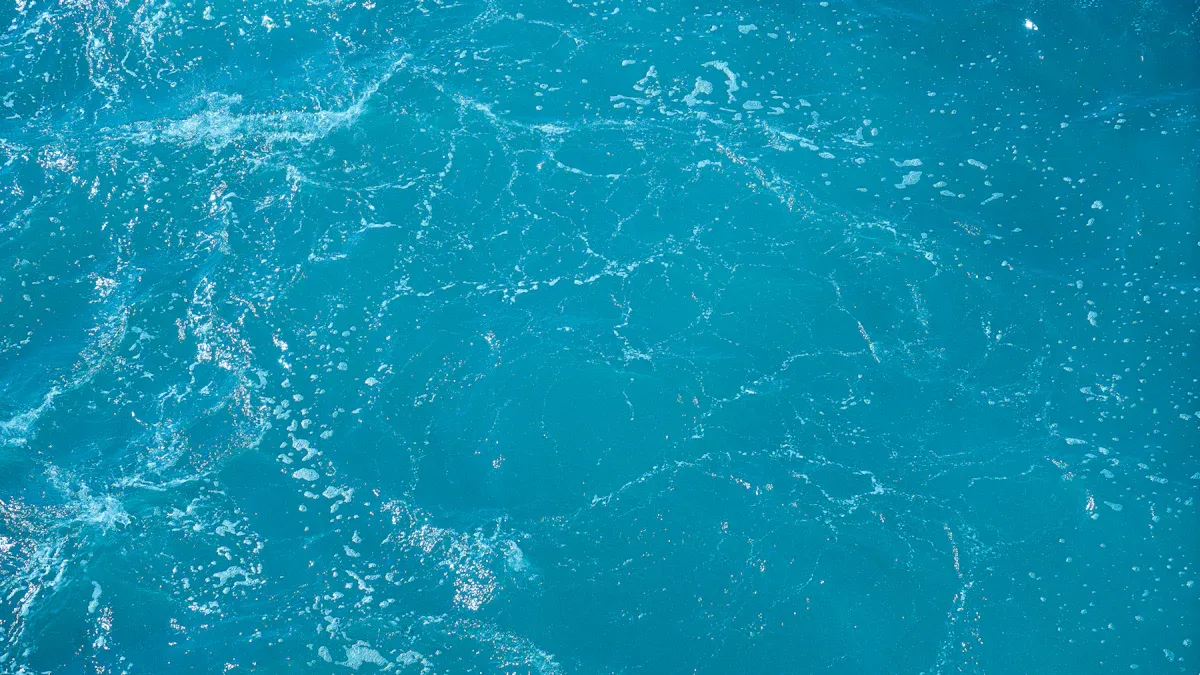
Wu Wei and Effortless Action
Wu Wei stands at the heart of the tao. This principle means acting in a way that feels natural and unforced. People often think Wu Wei means doing nothing, but it actually means letting actions flow smoothly, just like water. Water never rushes or struggles. It moves gently, adapting to every twist and turn. When someone follows Wu Wei, they allow life to unfold without forcing results. They trust the tao to guide them, much like water finds its way to the sea.
In daily routines, Wu Wei helps people stay calm and focused. For example, a person might wake up with the sun and move through the day at a steady pace. Instead of fighting traffic or rushing through tasks, they choose the path that feels easiest. This approach reduces stress and brings inner peace. In decision-making, Wu Wei encourages people to listen to their instincts and let answers come naturally. By practicing mindfulness, they notice when they push too hard and learn to step back. This gentle way of living the tao leads to more balanced choices and a sense of harmony.
"Do that which consists in taking no action and order will prevail."
— Tao Te Ching
Harmony and Balance
Harmony and balance shape every part of the tao. Water shows how to find the right amount in all things. It never tries to take more than it needs. In relationships, people can use the water mindset to create peace. They listen as much as they speak. They give and receive in equal measure. This balance brings happiness and helps everyone grow.
Many cultures use water to teach harmony. The Ojibwe people, for example, honor water as a sacred gift. They care for rivers and lakes, knowing that balance with nature supports future generations. In Bali, water temples and shared irrigation systems show how people can work together for the good of all. These examples remind everyone that living the tao means caring for others and the world.
Physical practices like Tai Chi and Qigong also help people embody the water mindset. These slow, flowing movements build flexibility and reduce stress. They teach the body and mind to move with the tao, not against it. People who practice these arts often feel more inner peace and resilience.
Facing Challenges
Adversity comes to everyone, but the tao teaches a gentle way to meet it. Water faces rocks and cliffs but never stops moving. It flows around obstacles, sometimes wearing them down over time. This water-like mentality helps people handle adversity with patience and strength.
Water acts as a lifeline, giving support during hard times.
It heals and soothes, bringing comfort and renewal.
Water teaches adaptability, showing how to change shape and keep moving forward.
It reflects, helping people see themselves clearly and grow.
Water offers protection and inspires resilience.
Bruce Lee once said, "Be like water." He meant that people should stay flexible and open, ready to adapt to any situation. This mindset helps in school, at work, and in relationships. When someone faces adversity, they can remember water’s gentle strength. They can let go of rigid plans and find new paths. This approach builds resilience and keeps the spirit strong.
Taoist teachings say that softness and patience can overcome even the hardest problems. By emulating water, people learn to stay calm and steady. They find inner peace, even when life feels tough. Living the tao means trusting that gentle actions and a flexible mind will lead to growth and happiness.
Water is the softest and most yielding substance. Yet nothing is better than water, for overcoming the hard and rigid, because nothing can compete with it.
Water’s Role in Nature and Health
Purification and Healing
Water stands at the heart of health and well-being. In Taoist tradition, people see water as earth’s most sacred element. They use it for both physical and spiritual cleansing. Rituals often include bathing in spring water or rainwater, which connects people to nature. Herbal baths, where special plants are boiled in water, help calm the mind and restore balance. These practices aim to purify the body and spirit, bringing harmony with the Tao.
Modern science also shows how important water is for health. The human body is about 60% water. Organs like the brain and heart hold even more. Water helps every cell work, carries nutrients, and removes waste. It keeps joints moving and protects the brain. Clean water prevents diseases and supports healing. When people drink safe water, they lower the risk of illness and help their bodies stay strong. Good water quality is key for a healthy life.
Water cleanses, heals, and connects people to the natural world. It supports both body and spirit.
Interconnectedness
Taoist teachings use water to show how all things connect. Water flows through rivers, lakes, and oceans, linking every part of the world. It moves gently, shaping the land and giving life to plants and animals. This flow reminds people that everything in nature depends on each other. The Tao describes life as a web, where every being plays a part.
Ecological ideas agree with this view. Water cycles through the air, soil, and living things, making sure that life continues. When people care for water, they help the whole planet. Taoism teaches that humans and nature are not separate. By respecting water, people honor the balance of the world and support the health of all living things.
Water’s journey shows that everyone and everything shares a connection. Caring for water means caring for all life.
Taoist philosophy says water is a good example for life. Water teaches us to be flexible and humble. It also shows how to live in harmony with nature. People can think each day, “How can I handle problems gently?” Acting with patience and being open helps us grow. Lao Tzu says, “Nothing in the world is as soft and yielding as water, yet for dissolving the hard and inflexible, nothing can surpass it.”
FAQ
What does water symbolize in Taoism?
Water in Taoism stands for softness, humility, and adaptability. It acts as a sacred teacher, showing how to move through life with grace. The symbolism of water helps people understand the balance of yin and yang.
What is the way of water?
The way of water means following the path of least resistance. People learn to flow around obstacles and stay flexible. This idea encourages living the tao and finding inner peace in daily life.
What does it mean to be like water in facing adversity?
To be like water means showing water-like resilience. People adapt to change and keep moving forward. They use a water mindset to handle adversity with patience and strength, always returning to their source.
What is Wu Wei and how does it relate to water?
Wu Wei is the concept of effortless action. Water shows Wu Wei by flowing naturally and never forcing its way. Emulating water helps people act with ease and find harmony in life.
What role does water play as earth’s most sacred element?
Water nourishes all life and supports spiritual growth. Taoist teachings see water as earth’s most sacred element. It purifies, heals, and connects all living things, reminding everyone of their place in the natural world.
